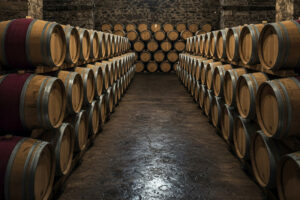Italian wine must learn to trust the financial market if it wants to grow and conquer new ones. Sandro Boscaini, president of Masi Agricola and Federvini, was the first one to take his company from the Valpolicella vineyards to the stock market, a choice he would certainly make again. “I hope that in the coming years other wineries will choose to be listed on the stock market: it is necessary and urgent”. The Amarone brand was listed on AIM in 2015, when signs of exiting the crisis were not that visible, but in 2017 its performance was positive, with a 3% capital increase and revenues that have started to grow in the last nine months. The time has now come to not throw opportunities to the wind. Individual savings plans guarantee an investment “blocked” for at least five years on the SMEs, and the many small Italian wineries must fight rather tough competition, starting with France and Spain.
“We are very supportive of individual savings plans (PIR), to stimulate growth for acquisitions as well”, explained Boscaini to the Adnkronos agency. Investors who choose the wine world, Boscaini continued, “are learning to understand that in the industry schedules must be respected and there is almost an ancestral attachment to the land. These aspects cannot always be subject to the fast logic of finance. Today, however, even the Italian wine world is changing radically: it is no longer the farmer and local distribution”. Instead, distribution “has become global, involving big players and enormous competition based on quality”.
Italian wine is not lacking in quality, nor in the charm of its history, which is often centuries old. It does lack, instead, “a structured business and important critical masses. I was surprised ”, continued the president of Federvini, “to realize that foreign investors are interested in a transparent company with plans for development and that wants to achieve new goals. We have always had a strong presence abroad (Masi's exports account for 84% of turnover) more or less on all continents. But the listing has given us a different kind of credit and the distribution chain, including importers, distributors and retailers, has seen us not only as quality producers but also as players in an advanced economy”.
In the future, it is going to be necessary to present ourselves as a united front. “Take, for instance”, said Boscaini, “a market like China. We cannot go there scattered and in small numbers. We need to be united and show that we have strong brands and adequate budgets to support them. This is the reason that finance and wine need to get together urgently, otherwise we will lose ground compared with European and extra-European competitors. France presented itself as a wine country when China had not yet emerged from its isolation, while we, instead, are at the very beginning. There needs to be a very strong institutional and governmental operation to explain that Italy is not only fashion. Unfortunately, abroad, wine is, above all, French”. Masi's plans do not exclude some new possible acquisitions for growth. “We are looking around the Venezia area - concluded the president of Masi, “although at the moment there are no concrete targets. The goal we have set ourselves is first of all organic growth, which is compatible with a mature market such as still wines. And, also an increase in external lines that aggregates other brands in the territory in a “friendly” way, following the example of the acquisition of Canevel”.
Copyright © 2000/2026
Contatti: info@winenews.it
Seguici anche su Twitter: @WineNewsIt
Seguici anche su Facebook: @winenewsit
Questo articolo è tratto dall'archivio di WineNews - Tutti i diritti riservati - Copyright © 2000/2026






































































































































































































